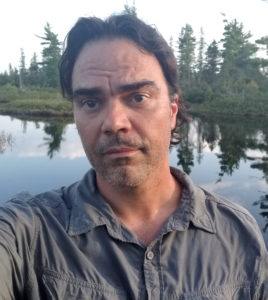 From Wednesday, March 6 to Friday, March 8 – International Women’s Day – the AGU Council met, bringing together all 25 sections, early-career and student representatives, committee chairs, and AGU leadership to celebrate the appointment of several new members. This included President-elect Susan Lozier who will follow current AGU President Robin Bell, continuing the succession of strong women in leadership positions at AGU.
From Wednesday, March 6 to Friday, March 8 – International Women’s Day – the AGU Council met, bringing together all 25 sections, early-career and student representatives, committee chairs, and AGU leadership to celebrate the appointment of several new members. This included President-elect Susan Lozier who will follow current AGU President Robin Bell, continuing the succession of strong women in leadership positions at AGU.
The Council met for the first time at AGU’s Washington, DC renovated headquarters, the first net zero commercial building in the nation’s capital – a redesign so cool that it makes you feel like you are earning air miles every time you flush the toilet. If that was not enough to motivate Council members, the two-day meeting was filled with energy and excitement as we jumped into the thick of the Centennial celebrations: 100 years of AGU and going strong!
The meeting focused on two main topics connected by the need to further explore and frame the boundaries and future of our science: (1) the convergence of science, and(2) how this convergence fits into the strategic planning process. Convergence research was one of NSF’s 10 Big Ideas in 2019, and was defined as “the merging of ideas, approaches and technologies from widely diverse fields of knowledge to stimulate innovation and discovery.” With that in mind, the Council engaged in a very dynamic discussion to explore the role of AGU in promoting convergence of science. Many agreed that convergence has been traditionally embraced at AGU, and current ongoing initiatives such Thriving Earth Exchange demonstrate that convergence of science is ongoing. Disciplinary biases, generational barriers, and differences in language, terminology, and communication were also seen as barriers to embracing and enhancing convergence. Potential solutions that could help break down these barriers included promoting “intellectual mobility” (such as the current tenure and promotion process, or Honors programs) that focus on the individual and their unique scientific identity.
The Council also learned about how AGU’s strategic context is taking shape as a result of the data gathering phase of the AGU planning process. Following the previous approach, the Council developed and discussed the requirements of core strategic questions, which included continued enhancing the public’s understanding of the beneficial impacts of Earth and space science while supporting convergent science as well as the need to increase our voice/footprint on the global stage. Concerns were also raised about integrating educational elements into each of these strategic questions. Council members then moved into a dynamic set of conversations in the “Critical Uncertainty World Café,” where the Council had to identify the most relevant aspects of a set of critical questions facing the Earth and space sciences and then develop strategies and tactics to address these challenges. Scenarios ranged from positive futures where artificial intelligence – acting independently – enhanced the publishing and scientific enterprises to more apocalyptic, darker scenarios where Skynet takes over.
The meeting also addressed Centennial planning for the 2019 Fall Meeting and each one of the four scientific neighborhoods discussed ideas/events for the “Centennial theater.” The Council discussed potential section affiliation models.
But perhaps most importantly, the Council was reminded that AGU is a multi-faceted organizations made up of students, early/mid/late/retired or never to retire Earth and space scientists. With more 62,000 members from 144 countries, we are all AGU – no matter race, gender, or ethnic origin. And we have the responsibility to promote discovery in Earth and space science for the benefit of humanity while teaching younger generations about the urgency and importance of this mission. While political climates and trends can change very quickly, the well-being of our planet needs the talents that all our members can bring to the table. This is particularly important as we start the countdown for the next 100 years of AGU. See you in 2119!
